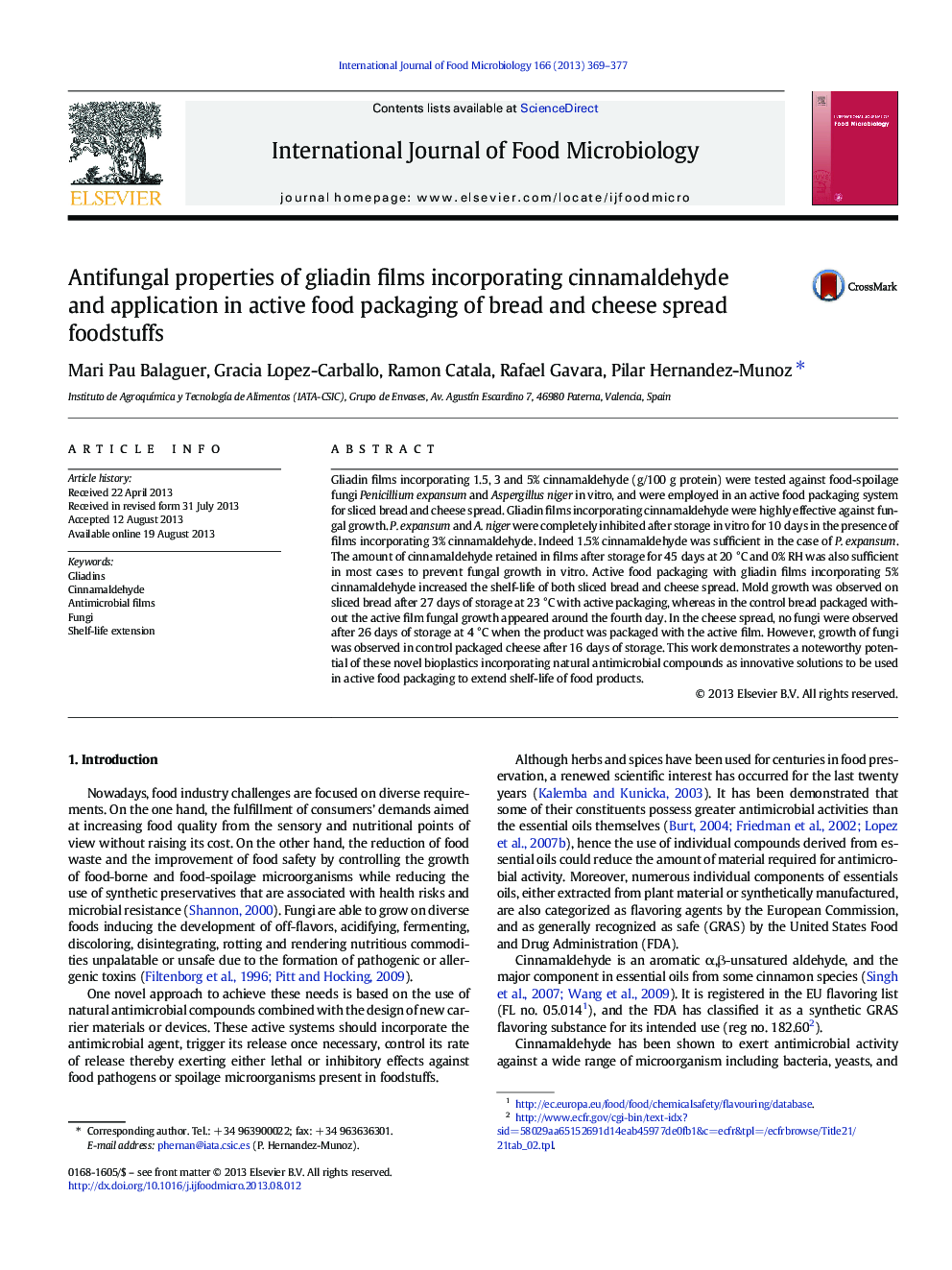| Article ID | Journal | Published Year | Pages | File Type |
|---|---|---|---|---|
| 6290227 | International Journal of Food Microbiology | 2013 | 9 Pages |
Abstract
Gliadin films incorporating 1.5, 3 and 5% cinnamaldehyde (g/100 g protein) were tested against food-spoilage fungi Penicillium expansum and Aspergillus niger in vitro, and were employed in an active food packaging system for sliced bread and cheese spread. Gliadin films incorporating cinnamaldehyde were highly effective against fungal growth. P. expansum and A. niger were completely inhibited after storage in vitro for 10 days in the presence of films incorporating 3% cinnamaldehyde. Indeed 1.5% cinnamaldehyde was sufficient in the case of P. expansum. The amount of cinnamaldehyde retained in films after storage for 45 days at 20 °C and 0% RH was also sufficient in most cases to prevent fungal growth in vitro. Active food packaging with gliadin films incorporating 5% cinnamaldehyde increased the shelf-life of both sliced bread and cheese spread. Mold growth was observed on sliced bread after 27 days of storage at 23 °C with active packaging, whereas in the control bread packaged without the active film fungal growth appeared around the fourth day. In the cheese spread, no fungi were observed after 26 days of storage at 4 °C when the product was packaged with the active film. However, growth of fungi was observed in control packaged cheese after 16 days of storage. This work demonstrates a noteworthy potential of these novel bioplastics incorporating natural antimicrobial compounds as innovative solutions to be used in active food packaging to extend shelf-life of food products.
Related Topics
Life Sciences
Agricultural and Biological Sciences
Food Science
Authors
Mari Pau Balaguer, Gracia Lopez-Carballo, Ramon Catala, Rafael Gavara, Pilar Hernandez-Munoz,
